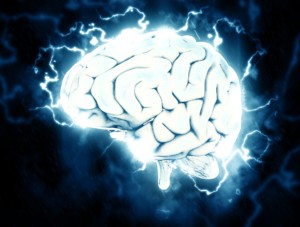What do you say when a patient comes into your office complaining of headaches?
Dr. Brady is back and better than ever in the next installment of her “Occlusion or Delusion” series. You can read her previous post on the importance of “BITE” over at Clinical Mastery Series’ blog.
Headaches matter. Don’t limit your ability to help patients simply because of prior diagnoses or the belief that headaches aren’t significant. In occlusion, they might be the effect that leads you to a cause you can resolve.
Approaching the Issue of Headaches
 One of the questions I ask new patients is: “Tell me about headaches?”
One of the questions I ask new patients is: “Tell me about headaches?”
Instead of asking, “Do you get headaches?” or “How often do you get a headache?” I preface the conversation in an open-ended way so that I can allow the patient the freedom to speak. Open-ended questions are the entire format of a new patient consult at my practice.
You don’t want to play “20 questions” with tons of yes or no queries. They need to be able to supply their own answers.
If their response to your open-ended question is, “I don’t know, doesn’t everybody get a headache,” then you can assume that they don’t have a serious problem with consistent headaches.
People who know specifically how many times they have a headache are atypical. Everybody on the planet has a headache at some point, so the simple fact of having had them at some point is not diagnostic.
Patients who do not have a problem with headaches can’t give you a specific amount. People who have headaches as a disorder can tell you pretty precisely how many times a week or a month they have headaches. The fact that they know the number implies it’s something you need to explore further.
For these people, you’ll want to ask if they’ve worked with a physician on their headaches. Usually, the answer is a yes. They’ve either thought about it or they have been to a doctor.
Adding More Information & Dealing With Existing Diagnoses
 Lots of dentists don’t ask about headaches. The very act of asking can enable you to find patients you weren’t able to help before.
Lots of dentists don’t ask about headaches. The very act of asking can enable you to find patients you weren’t able to help before.
Additionally, even dentists who ask about them don’t pursue the issue if the patient’s physician has already diagnosed the headache. These dentists then lose the opportunity to continue to help that patient or increase the efficacy of their treatment.
Of course, you don’t want to question an existing medical diagnosis. The patient will be more likely to believe their physician than their dentist, so don’t even put yourself in that sort of imbalanced position.
But you can add more information. Suggest that problems related to teeth can aggravate or increase the frequency of their discomfort.
How to Help Your Patients
 Just because they have a diagnosis doesn’t mean their issue isn’t dental. Change the way you talk about it if they already have a diagnosis.
Just because they have a diagnosis doesn’t mean their issue isn’t dental. Change the way you talk about it if they already have a diagnosis.
Discuss “exploring” how teeth can be a trigger and how you can reduce the frequency of their pain.
There are a lot of headaches caused by parafunction or that are exacerbated because of parafunctional activity. You can’t stop a patient from parafunctioning, but you can make them an appliance or do an equilibration. There are ways you can moderate the forces they generate by altering their occlusion.
Do you see headaches as a stumbling block in treatment or as an opportunity? Let us know your thoughts in the comments!


